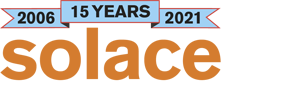Anthea Kilminster
Solace has recently extended work in Kirklees funded by West Yorkshire & Harrogate Health Care Partnership (WYHHCP). This builds upon work in Kirklees and Calderdale on the “Transitions” project; and through “Connecting Opportunities” supporting new refugees with integration and employment; and therapeutic work with Syrian children and families as part of the “Resettlement – Child and Family Well-Being” project.
In practice this means extending our therapeutic care model to asylum seekers and refugees with complex pre-migration and post migration trauma in Kirklees. A large part of the work also encompasses a public health role: investigating and reporting on barriers to accessing mental health services by refugees and asylum seekers, particularly in light of COVID-19 restrictions. Indeed this pandemic has really highlighted the poorer health outcomes for BME communities, so uncovering the detail of why that is the case is crucial. Evidence so far points to: being highly represented in front line occupations, highly populated residential areas and multi-generational households; disproportionately experiencing underlying health issues such as diabetes and CPD (coronary pulmonary disease), and experiencing the physiological effects of structural racism that impact on the endocrine system leading to higher level stress response and reduced immune functioning.
Work has begun
- promoting Solace’s profile within the third sector and extending referral pathways from other organisations;
- delivering mental health awareness training for other professionals such as library staff as part of ‘Libraries of Sanctuary’; Kirklees council and third sector employees;
- joining groups such as “Lift the Ban” a working group which is developing research and lobbying to bring about positive legal change to help asylum seekers to have access to employment.
Clients are based largely in Huddersfield and North Kirklees: Dewsbury and Batley, and benefit from a richness of local authority and voluntary sector provision, with organisations such as S2R Create Space organising outdoor and creative activities; Happy MOMents and the WomensCentre providing support to women; Kirklees Befriending Scheme; Reach – Baptist Drop In Centre and a very active Kirklees Welcome Team at Kirklees Council.
An exciting development this week has been a commitment by the Public Health Department in Kirklees to supporting Solace in this project and to join WTB – Working Together Better – a sub group within Public Health Kirklees. A partnership with Mears is also being pursued to work more closely with their Well-being Officers.
The direction of research seems to lead to addressing the stigma attached to accessing help with emotional and mental health problems felt by some of our clients. This may prevent them talking about these issues and presenting to referral organisations. Qualitative research has revealed feelings such as: it is legitimate to talk about physical health problems but that discussing problematic emotions is embarrassing, will be met with disbelief or you will be shunned. Collaboration is required to address this both in working with referrers and clients to reassure and reduce stigma.
Solace is available for training and consultation to make services more accessible to refugees and asylum seekers.

